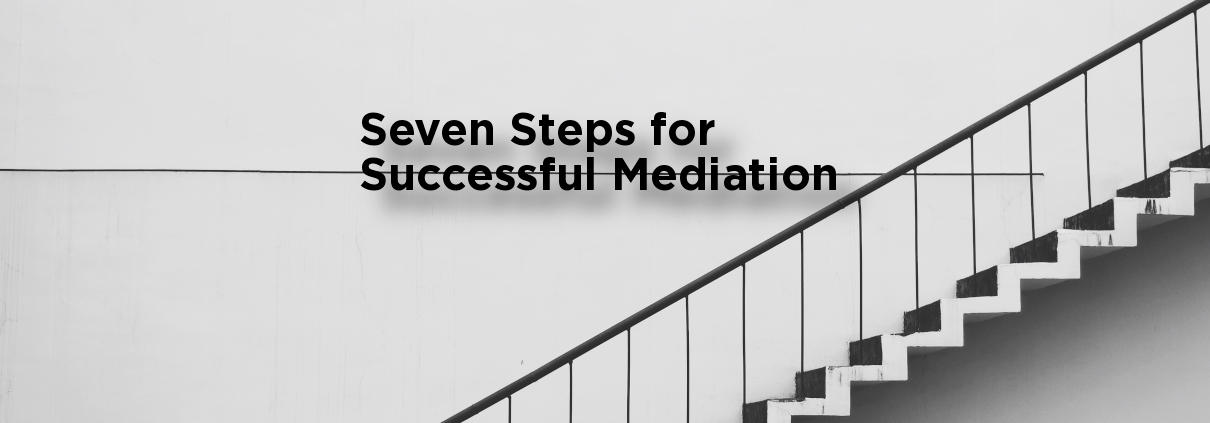Article first appeared in Alabama Construction News, August/September 2013 Edition
Members of the construction industry are often called upon to participate in Mediation. Mediation is simply a form of negotiation which is facilitated by a mediator. In mediation, the parties insert a third party into their dispute in an effort to increase the prospects that the parties will reach a mutually agreeable solution to the dispute. The fundamental principle of mediation is that the parties retain control over their future. Unlike a trial or an arbitration, in mediation both parties have to agree for there to be a resolution. In fact many construction contracts, including the Standard AIA form contracts require mediation prior to submitting a claim to litigation or arbitration.
As Mediators and attorneys, we are often asked to suggest best practices for lawyers representing their clients in mediations. There are a number of things lawyers can do to be more effective in a mediation. This article, however, will discuss seven ways that you, as the owner/contractor/ subcontractor, can assist in making a mediation successful.
BE PREPARED. PREPARATION
Preparation. Preparation. A mediation is similar to most other endeavors. The one who is best prepared usually has the best result. Research your facts. Create a time line. Organize your documents and drawings. Be ready to present your case and support for it in summary form. Be ready to answer the questions of others. Anticipate arguments and opposition. One of your goals at a mediation is to convince the other side that you have a strong case and are prepared to take your case to litigation or arbitration if the mediation is unsuccessful. Finally, know the consequences of a failure to reach an agreement in the mediation: what is the best possible outcome in litigation, what is the worse possible outcome in litigation and what is the effect of each on your business.
PROPERLY DOCUMENT YOUR FILE
Think like a lawyer. How can I best organize an document my file? Train your people to take the time necessary to do this well. A properly documented file gives you an advantage over your opponent and will make it easier for you to accurately evaluate and determine fault and risk. A well documented file will also make your attorney’s job easier and hopefully reduce your costs in attorney’s fees.
HAVE THE RIGHT REPRESENTATIVES PRESENT
Construction disputes are different than many other disputes. It is not uncommon in construction disputes to have laborers, foremen, managers, supervisors, consultants and owners all having information relating to the disagreement. Anticipate who might be called upon to answer, explain or respond to an issue at the mediation. Consider bringing those people to the mediation or at least having them available by telephone to provide information. Additionally, you must have the person who has authority to settle the issue present at the mediation.
BE COURTEOUS
“Sugar catches more flies than vinegar.” While this adage may not apply to every situation in life, it does apply in mediations. Rude behavior is rarely helpful in mediations. Mediations present an opportunity for sharing information, answering questions and resolving disagreements. A spirit of civility and cooperation – courteousness – is much more effective than being angry or rude. People feel better about compromising claims and resolving differences with people with whom they get along. Nothing puts a damper on the mood in a mediation quicker than rude behavior. Remember what your mother taught you “treat people the way you want to be treated.”
HAVE THICK SKIN
Parties will experience a wide range of emotions in a mediation. Be prepared for this. You may hear things said about you, your employees or your company that you consider insulting and untrue. Don’t allow yourself to be distracted from your goal by rude or insulting behavior from another. Don’t let your pride get so wrapped up in your conflict that you allow this to cloud your judgment. Remember, it’s just business. Be prepared to deal with this type of behavior.
BE PATIENT
Mediation is a process. It takes time. Mediation has even been referred to as a dance. This means it is a series of steps orchestrated or connected together. As information is exchanged and differing positions are understood, risks and rewards become more clear as demands and settlement offers are exchanged and considered positions frequently soften. There aren’t many shortcuts to the process. Allow the process to work for you. Be prepared to devote the entire day or days set aside for the mediation. As the parties invest time, money and energy in the process, it becomes harder to walk away without a resolution.
TRUST YOUR ATTORNEY
You hired them for a reason. Let them do their job. They are there to assist you and help you make the best decision. It is their job to assess risks and determine probabilities of success for a hearing on the merits. Too often, we see parties not fully trusting their attorneys. This presents a non-unified front and makes it more difficult for your attorneys to do their job well. If the disagreement being mediated cannot be resolved, your attorneys are there to protect your interest through the dispute resolution process.
In conclusion, most mediators will tell you that between seven and eight mediations out of ten are successful. It is a process that works. When you do your part, you increase your chances of having a successful resolution and accomplishing your goals at the mediation.


